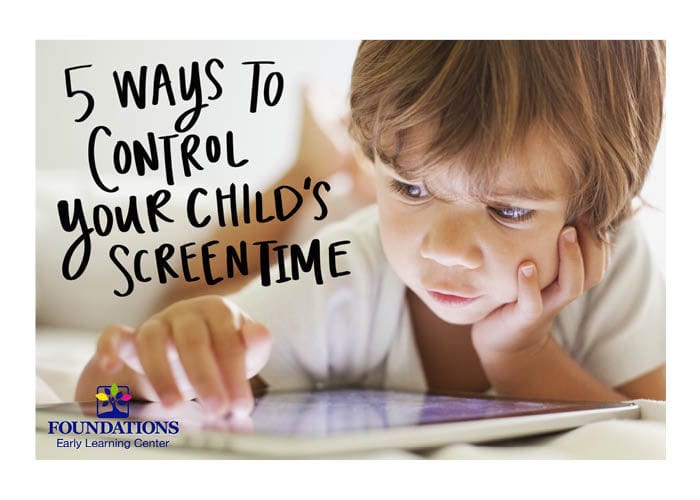By Guest Blogger Whitney Barnard
It’s 2017, and screen time is more than just TV. It’s computers, tablets, phones, and geez, now even watches!
The best way to control your child’s screen time is to add it to your daily list of activities, just like you do with chores, bath or dinner. It’s crucial to monitor screen-time with your child to ensure your household remains happy and mentally healthy. While many digital programs claim to be “educational,” a child younger than 2 is more likely to learn and recall information from a live presentation than a video. By the age of 2, a child can benefit from appropriate types of screen time — such as programs with movement, stories, or songs. The most important ways to avoid excessive screen time is to initiate screen time guidelines and follow them accordingly.
1. Pay Attention to what your children are watching.
Observe to make sure the content is appropriate, and be mindful that “educational shows” are still considered screen time. View these programs alongside your child to help them understand what they’re watching. Avoiding fast-paced programs is a must for every plugged-in child. Young children have a difficult time understanding what is happening when things are coming and going too quickly. This can include apps with advertisements or other distracting content, and especially commercials, since they aren’t created for children to comprehend in the first place.
2. Make a Plan and stick to it.
According to the American Academy of Pediatrics, screen time should be limited to two hours for children ages 3 to 18, and children 2 years old and younger should have no screen time. Though screen time doesn’t seem inherently bad, anything done in excess can have ill effects.
3. Lead By Example so your child can see you are following the rules, as well.
If the time is up on your child’s screen time, take that opportunity to do something as a family. Play a game, cook a meal or special dessert, or do a Pinterest project. Here’s some ideas of screen-free play.
4. Use Technology to help you keep control.
Things like Smart TVs, DVDs, or pre-recorded shows can allow you to stop or pause something so you can come back to it later. This is an important aspect to explain, so your child knows their show or movie will be there and they aren’t missing out on anything. Additionally, there are a number of apps available for parents to download that allow you to put a limit on how long and what your kids are viewing on their devices. Those apps are listed here.
5. Keep Media Where It Needs To Be: In a Common Area.
Keeping your child’s access to technology within view allows you to do a few things. Firstly, you can monitor what they are viewing at all times to ensure it’s appropriate for their age. Secondly, you can reassure yourself they aren’t accessing technology after sleeping hours and at times when they should be doing homework or other activities. Lastly, out of sight, out of mind. How many of you can relate to that time you weren’t even thinking about a pair of shoes you had previously viewed, a show you had been watching or even a friend you hadn’t chatted with in a while on Facebook until your phone “reminded” you? It works the same way for your children. If their screens aren’t near, they won’t be tempted to use them and get engrossed in technology for hours on end. After all, we all know that’s what happens.
These are several ways you can contribute to your child’s screen time management. However, the key to success is always follow-through. Enforcing screen time rules is the first step. Then you need to ensure the whole family is on board, and stays on board. In the end it will lead to more family time, more communication, and less mental exhaustion. You can help keep track of your child’s screen time by using our FREE family screen time chart available here.
 Whether your family’s goal is school readiness, socialization, literacy, supervision or simply love and care while you are at work, Foundations Early Learning Center gives your child both a solid academic foundation and the tools to be successful beyond the four walls of school and in all aspects of life. Visit www.foundationsearlylearningcenter.com for more information.
Whether your family’s goal is school readiness, socialization, literacy, supervision or simply love and care while you are at work, Foundations Early Learning Center gives your child both a solid academic foundation and the tools to be successful beyond the four walls of school and in all aspects of life. Visit www.foundationsearlylearningcenter.com for more information.
*Sponsored by Foundations Early Learning Center
















